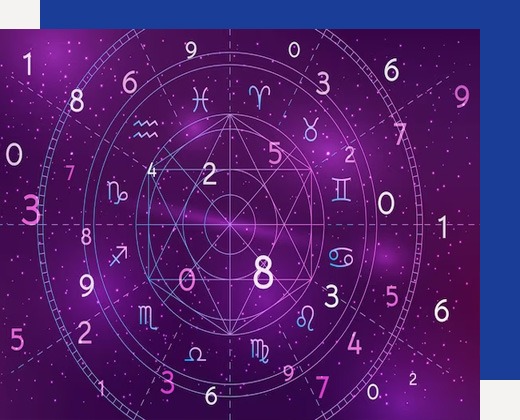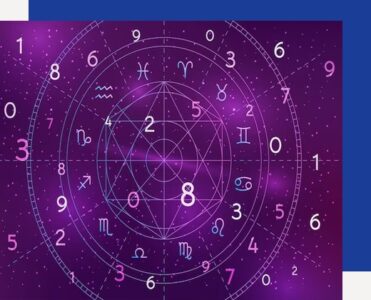
Dr. C K Saraswat
Dr. C K Saraswat
I am Dr.C K Saraswat. Astrologer, Vastu Expert, Numerologist and Positive energy Pooja Expert. I have 21 Years’ Experience and also have 41 Years Legacy in these fields. I have done 1 Lakh + successful Consolation. I am a PHD holder in Vastu Expert, Also Goldmedlist in Vastu. My Thesis was importance of Pyramid and Remedies with the help of Pyramid.
I have practise astrology—the study of the positions of celestial bodies and their effects on human affairs and natural phenomena—are known as astrologers. To forecast the future and provide guidance, astrologers usually use the positions of the Sun, Moon, planets, and stars at the time of a person’s birth (natal astrology) or during important events.
These celestial positions are frequently interpreted by astrologers using a variety of systems, such as Chinese, Vedic, and Western astrology. They might have a focus on mundane astrology, which predicts occurrences in the world, or horary astrology, which answers queries based on the chart cast for that particular moment.
What is Astrology?
Here are some key aspects and concepts related to astrology:
Celestial Bodies: Astrology primarily focuses on the Sun, Moon, planets, and constellations of stars. Each celestial body is believed to have its own energy and influence.
Zodiac Signs: The zodiac is divided into 12 equal segments, each associated with a specific constellation and time period. These segments are known as zodiac signs, such as Aries, Taurus, Gemini, etc.
Natal Astrology: This branch of astrology analyzes the positions of celestial bodies at the time and place of a person's birth to create a birth chart, also known as a natal chart or horoscope. The positions of these bodies are believed to shape an individual's personality, strengths, weaknesses, and life path.
Aspects and Angles: Astrology considers the angles (such as conjunctions, squares, trines, etc.) formed between celestial bodies in a chart, which are believed to influence how their energies interact.
Transits: Astrologers study the ongoing movements of celestial bodies in relation to a person's birth chart. These transits are believed to signify periods of opportunity, challenge, or change in an individual's life.
Astrological Houses: The birth chart is divided into 12 sections, known as houses, each representing different areas of life, such as relationships, career, and home. The positions of celestial bodies within these houses are interpreted to understand specific life themes.
Branches of Astrology: There are various branches of astrology, including:
Mundane astrology: Predicting world events and phenomena.
Horary astrology: Answering specific questions based on the time the question is asked.
Electional astrology: Selecting auspicious times for events like weddings or business ventures.
Medical astrology: Assessing health and well-being based on astrological factors.
Criticism and Skepticism: Astrology is often criticized by skeptics and scientists who argue that its principles lack empirical evidence and scientific validity. Critics assert that the correlations between celestial movements and earthly events are coincidental or can be explained by psychological factors such as confirmation bias.
Despite criticism, astrology remains popular among many individuals who find meaning, guidance, and self-reflection through its practices. It continues to evolve with new interpretations and applications in modern contexts.
There are no secrets to success. It is the result of preparation, hard work, and learning from failure.
By Dr. C K Saraswat
What is Vastu?
Here are some key principles and concepts associated with Vastu:
Five Elements: Vastu is based on the concept of the five elements—earth, water, fire, air, and space—and their balance within a space. It emphasizes the importance of integrating these elements harmoniously to promote well-being and prosperity.
VastuPurusha Mandala: This is a symbolic diagram used in VastuShastra, representing the cosmic being lying with his head pointing northeast and his feet in the southwest. The layout of a building is designed in accordance with this mandala to ensure harmony and balance.
Zones and Functions: Vastu divides a building into different zones, each associated with specific functions such as sleeping, cooking, working, and worship. Proper placement of rooms and functions within a building is believed to optimize energy flow and support the occupants' well-being.
Materials and Colors: Vastu recommends the use of specific building materials and colors based on their elemental properties and their effects on the energy of a space. For example, earthy tones and natural materials are preferred for creating a grounding and stable environment.
Remedies: In cases where Vastu principles cannot be fully adhered to due to structural constraints or other reasons, various remedies are suggested to mitigate negative energies. These may include the use of specific symbols, yantras (geometric diagrams), or placement of objects to balance energies.
Application: Vastu principles are applied not only to residential buildings but also to commercial spaces, offices, gardens, and even city planning. Many people consult Vastu experts or follow Vastu guidelines when constructing or renovating buildings to ensure auspiciousness and prosperity.
While VastuShastra has ancient roots and is deeply ingrained in Indian culture, its principles continue to be applied and adapted in modern architectural and design practices. It is seen by many as a way to create harmonious living and working environments that support physical, mental, and spiritual well-being.
What is Numerology?
Here are some key concepts and practices associated with numerology:
Core Numbers: Numerology typically focuses on several core numbers derived from a person's birth date and full name. These core numbers include the Life Path Number, Destiny Number (also called Expression Number), Soul Urge Number (also called Heart's Desire Number), Personality Number, and others. Each number is calculated using specific methods and represents different aspects of an individual's personality and life journey.
Destiny Number: Also known as the Expression Number, this number is derived from a person's full birth name and reflects their natural abilities, talents, and potential in life. It signifies the person's purpose or mission in life and how they express themselves to the world.
Soul Urge Number: This number, calculated from the vowels in a person's full name, represents their inner desires, motivations, and emotional needs. It reflects the deepest aspects of one's personality and what truly drives them on a soul level.
Personality Number: Also called the Outer Personality Number, it is calculated from the consonants in a person's full name and represents the outward expression of one's personality, how they present themselves to the world, and how others perceive them.
Numerological Charts: Numerologists often create charts or profiles that display a person's core numbers and their interpretations. These charts can provide insights into various aspects of a person's life, including relationships, career, and personal growth.
Compatibility Analysis: Numerology is also used to assess compatibility between individuals, whether in romantic relationships, friendships, or business partnerships. By comparing and analyzing the core numbers of two or more people, numerologists can determine the potential strengths and challenges in their relationships.
Timing and Cycles: Numerology also involves the study of cycles and patterns of numbers, such as personal years, months, and days. These cycles are believed to influence different phases of life and can be used for planning, decision-making, and understanding life events.
Numerology is often used as a tool for self-discovery, personal growth, and gaining insights into one's strengths, weaknesses, and life purpose. While it is considered a pseudoscience by sceptics, many people find value and guidance in its teachings and interpretations.






